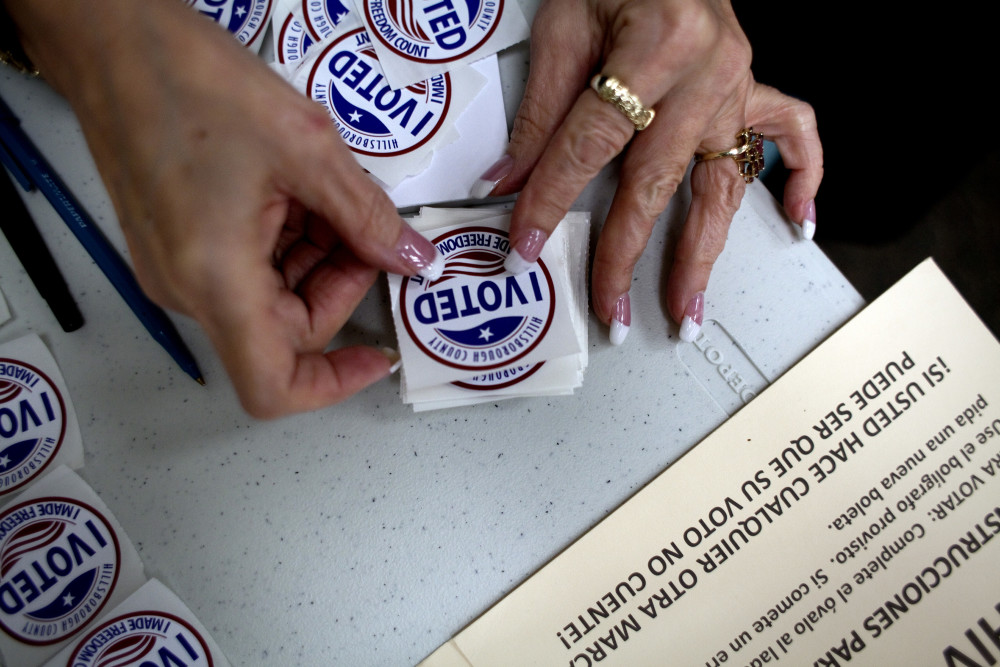By Kate Giammarise
Pittsburgh Post-Gazette
Nurse practitioner Suzanne Colilla has thought about running for public office.
“I think it’s important for nurses who are bedside experts to have a seat at the table when we talk about health policy issues,” she said.
But trying to win a local election raises a host of questions: How much money do you need to raise? How do you get the support of your party in the primary? How do you run a campaign if you’ve never done it before?
Ms. Colilla and about 40 other women — and a handful of men — spent a recent snowy Saturday in a Chatham University conference room learning just that.
“Ready to Run” is a campaign school aimed at women, a full-day boot camp complete with tips from women elected officials, advice on navigating local party systems, lessons on public speaking and an outline on the basics of fundraising and planning a campaign — plus a big dose of pep talks and confidence-building.
The training is sponsored by Chatham’s Pennsylvania Center for Women and Politics.
Jennifer Stergion, an attorney from Buffalo, N.Y., said the event attracted her because it is non-partisan and focuses on the practical aspects of a campaign.
Other campaign tutorial events she had considered attending in the past were more focused on helping candidates who, for example, were committed to an anti-abortion or abortion rights position.
“This is more of a nuts-and-bolts event and less policy-driven,” Ms. Stergion said.
Indeed, apart from a brief but spirited disagreement between Republican and Democratic panelists over the campaign of U.S. Sen. Pat Toomey, R-Pa., the day — while filled with talk of politics — was remarkably issue-neutral. Discussions focused on everything from what to expect in a campaign to nitty-gritty details such as how to best speak to a television camera and how to split your time between fundraising and meeting with voters.
“In the current political environment, everything is so divisive. It’s nice to be able to just focus on the mechanics of it,” said Ms. Colilla, of Washington County, who said she learned the most from a panel discussion about Republican and Democratic party infrastructures and how best to approach them.
Pennsylvania generally ranks poorly in terms of its number of women elected officials — 39th nationally. Experts have blamed the state’s low ranking on everything from its highly structured and institutionalized political parties to full-time Legislature, which can make it harder for a working mother to serve in office.
“When we have more women at the table, bipartisanship increases, transparency increases, [new] issues come to light, different perspectives on old issues come to light,” said Dana Brown, executive director of Chatham’s Pennsylvania Center for Women and Politics.
The state has never elected a female governor, although Catherine Baker Knoll served as lieutenant governor from 2003 to 2008. Women make up less than 18 percent of the state Legislature, and at the federal level, there’s just one woman in the state’s 20-member congressional delegation of 18 congressmen and two senators.
Ready to Run aims to boost those numbers. Elsie Hillman, former Republican national committeewoman and philanthropist, is a key funder of the training.
“I have spent a great deal of my political life trying to get more women into public office,” Mrs. Hillman said.
Those attending the training ran the gamut from women who had a mild interest in running for office but no concrete plans to several women actively running for congressional seats in Pennsylvania. They heard from Kathy Dahlkemper, who served in Congress from 2009 to 2011 and is now Erie County’s chief executive.
Ms. Dahlkemper advised women to prepare family members for possible negative campaigning; to talk to other women who have run for help and advice; and to be authentic and make the campaign your own. For instance, Ms. Dahlkemper loves cycling and last year did a three-day campaign bike ride around Erie County, which she said was a big boost for her county executive campaign.
Raising money was the hardest thing to learn to do, she added. “What’s the worst thing they could do? Say ‘No’ and hang up,” she told the audience.
A running theme of the day seemed to come down to emphasizing that women can win, but they need more of a push than men do to get them to run.
Call it a confidence gender gap.
“They sort of want to seek permission [to run]. … They just need to step up, say, ‘I want to run,’ and run,” said Allegheny County Councilwoman Heather Heidelbaugh, a speaker at the event.
“[Women] tend to thing we need a Ph.D. in something before doing it. A man lives next to a voting booth and he thinks he should be president,” joked Bernadette “Bernie” Comfort, executive director of the Ann B. Anstein Excellence in Public Service Series and an Indiana County Republican.
Jake Pawlak, a veteran of local political campaigns, gave a presentation on developing a campaign plan. “The purpose of today was not to create leaders. They’re already leaders. It’s about giving them the tools to empower them,” he said.
The program is part of a national training model from the Center for American Women and Politics at Rutgers University. Another Ready to Run training is scheduled for Feb. 15 in Philadelphia.














































































































































































































































































































































































